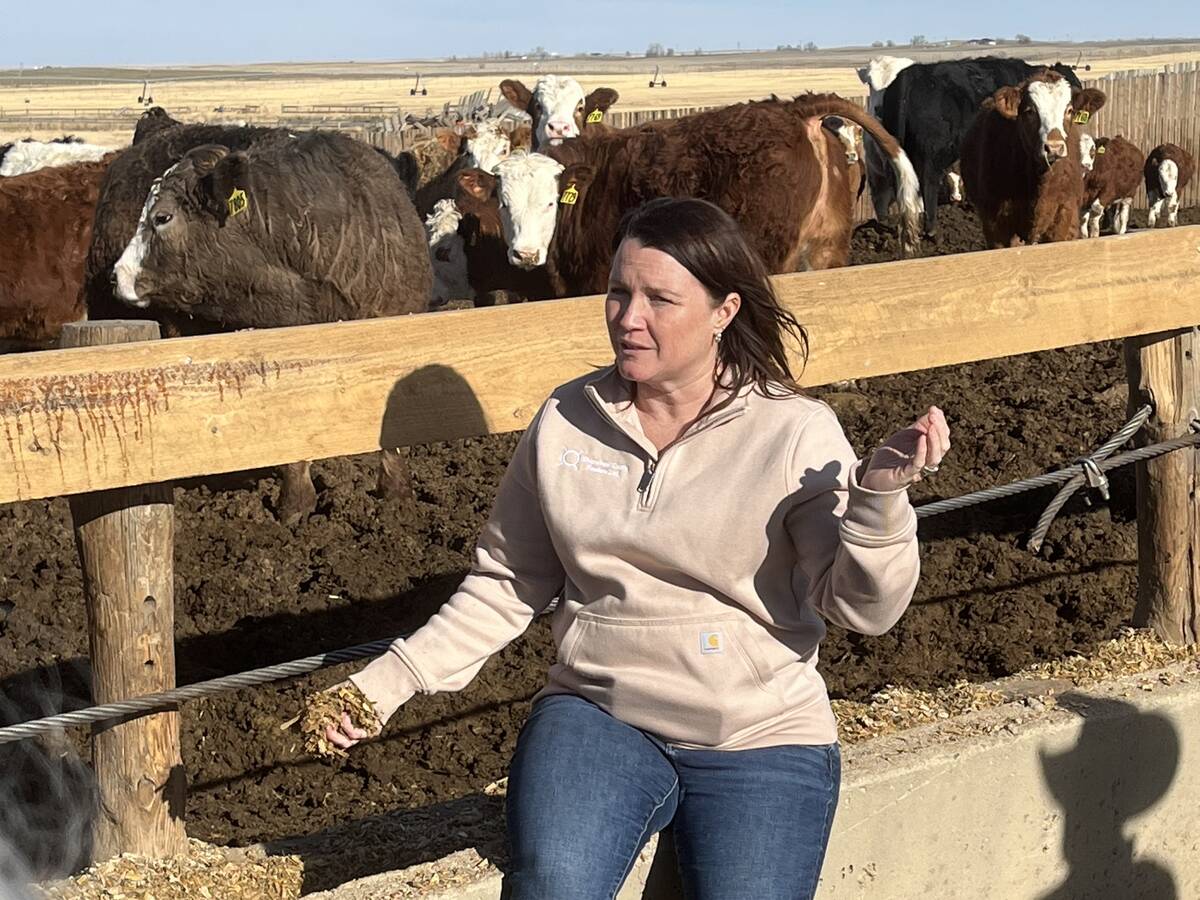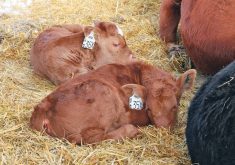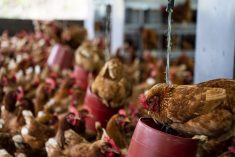Should owners be worried if their horse shakes its head all the time?
It can be a normal behavior, such as when a horse is trying to ward off flies, but it can also indicate a more serious problem.
Repetitive head movements can vary from mildly irritating to severely debilitating. Horses and ponies can be affected. They may shake their heads up and down or side to side, sometimes with forceful, jerky movements bad enough to cause self-inflicted injuries.
Read Also

Roots of Resilience: The 50-year evolution of Shipwheel Cattle Feeders
Alberta’s Shipwheel Cattle Feeders is one of Canada’s pioneers in holistic regenerative agricultural practices.
To alleviate discomfort, they might rub their noses on their legs or nearby objects, sneeze, or snort frequently. Excessive blinking or squinting can also occur.
How head shaking presents, how often and severity of the episodes all offer clues about its underlying triggers.
Behavioural changes such as irritability, anxiety and resistance to being ridden or handled often accompany the condition. Signs of discomfort may include pinned ears, tail swishing and sensitivity to light. Some horses may avoid direct sunlight, seek shade or tuck their heads into the flanks of other horses.
The condition may show a seasonal pattern, with symptoms worsening in spring and summer due to increased insect activity and brighter light. Symptoms also generally worsen during exercise. In severe cases, horses may exhibit signs of head shaking even while resting and can become dangerous to ride.
To diagnose the condition, it is essential to rule out potential causes.
Dental issues, such as sharp points, unaddressed wolf teeth, fractured teeth or an improperly used or fitted bit can lead to head-shaking symptoms. Ear problems, including infections, mites or aural plaques, may also contribute. Ill-fitting headgear or saddles can cause discomfort and pain, exhibited in head shaking.
In some equines, it can be a learned behavior in response to stress, boredom, pain or anxiety, especially if they are in high-stress environments or lack adequate social interaction.
Medical conditions such as infections, sinusitis, cranial nerve disorders, jaw joint pathology, guttural pouch infections, head trauma or tumours can also lead to head shaking. These cases are often accompanied by other symptoms like nasal discharge, coughing or other changes in behaviour.
A commonly recognized but poorly understood neurological condition linked to head shaking involves the trigeminal nerve, which is responsible for facial sensation. It is postulated that the nerve becomes overly sensitized, causing neuropathic (shooting and burning) pain, leading to an involuntary and repetitive vertical head movement in horses as they attempt to evade the discomfort.
Diagnosis is complex due to the lack of specific tests. The process usually involves gathering a detailed history and conducting physical, dental and neurological examinations, as well as possibly using endoscopy and imaging. Observing the horse’s behaviour and recording episodes under various circumstances can provide valuable insights into potential triggers and patterns.
Once the cause is identified, treatment and management can be customized. Common therapies include anti-inflammatories, pain relievers and nerve-specific medications. Environmental management strategies, such as using fly masks, face masks or nose nets, can also help reduce symptoms.
Addressing dental issues through equine dentistry as well as ensuring proper fit of tack and equipment might be required. Behavioural modifications for both the horse and rider may be necessary.
Alternative therapies, including acupuncture, chiropractic care and herbal supplements, may also be used. While their effectiveness varies, they are additional options.
After ruling out other potential causes, there remains a subset of horses that exhibit a distinct, vertical type of head shaking similar to the natural fly defence system, but observed even when no flies are present. The shaking may be so severe that it prevents the horse from being ridden or used.
This form of head shaking is especially frustrating for horse owners and professionals, because its underlying mechanism is unknown. However, non-invasive, affordable and practical solutions like nose nets, fly masks and face masks can reduce symptoms in some cases. Magnesium supplements combined with boron have proven effective for others.
In summary, head shaking in horses is a nuanced issue that requires a thorough approach to diagnosis and treatment. With the right care, many horses can experience significant improvement, leading to a better quality of life and enhanced performance.
















